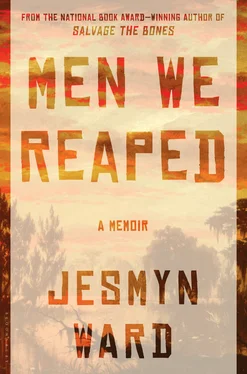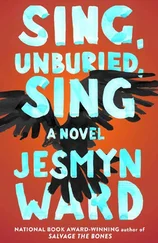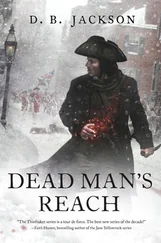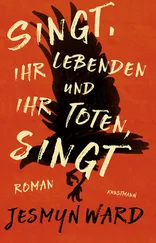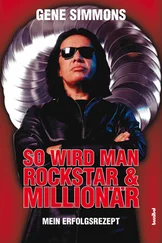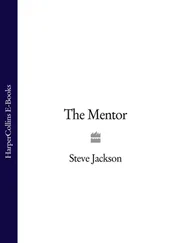I knew then, dimly, how the world was changing, how America was hemorrhaging blue-collar jobs overseas, how factory jobs like the one my father had once supported a family on were becoming a rarity while only dead-end service jobs remained, and my brother was burning through those in search of something with a future.
“What you watching next?” I said, and sat on the edge of his bed. He made room for me, assessed his VHS collection.
“Don’t know.”
“Want to watch Total Recall ?”
He shrugged, and I saw my father in him then, in the lovely lean globes of his muscled shoulders, in the straight, clean line of his collarbone, in the dimpled seat of his neck. He’d been husky so long it was a surprise to see him before me, suddenly a muscular, square-shouldered man.
“Okay,” he said.
I settled in the dark to watch the movie with him, waiting for him to say something else, but he squinted at the television, and there was a line between his brows, his black-brown eyes serious. He rubbed the bottom of his foot on the carpet, and the smell that was him, that aroma of cut hay and coconut oil and salt, settled in the room. I drew my knees into my chest, set my chin on them, and watched Arnold fight the alien predator that threatened to kill him. He was outmatched and outmuscled. He was scrappy with brawn and foolish hope.
There was only one time that summer that I felt like the big sister to his little brother. Most of the time I felt like the little sister, since Joshua had managed to find work and get his own car and tell me things that emphasized how naive I was about my life and his, repeatedly. I’d spent all the money I’d saved in college, around $3,000, to buy a used white Toyota Corolla in the summer of 2000. It was old and loud, and I was ashamed to drive it. Shit, I’d drive it , Joshua had said when I complained about the car. One day I called my father, asked him if he would change the oil in my car if I bought it and a filter, and he said yes, so I asked my brother if he would ride with me to the auto parts store because I had no idea which filter and how many quarts of oil to buy.
It was fall and chilly, so I cracked the windows, but it was warm enough that we rode without heat. Josh wore a dark blue plaid jacket, and he was large in my small car. Some of our friends from the hood, Rob and Pot and Duck, had given him the name Ojacc. Because he looks like a big-ass lumberjack , Pot said.
“Stop driving like a old woman,” he said.
“What you talking about?” I said.
“You drive too slow.”
“No I don’t.”
“And why you act like you scared to pull out?” He laughed, and I shrugged. I felt chastened, his little sister. “You can’t drive.”
We drove through the backwoods, evergreens tall at the sides of the road, the sky a pale blue strip above our heads, quiet houses here or there, the smell of the country in fall strong in the air: burning wood rich with the scent of pine needles and smoke. Josh lit a cigarette.
“You need to stop smoking,” I said.
“I’m stressed out,” he said. He’d seemed so much older than me for so long that I was surprised when he began talking about his girlfriend, who was living with us for a time because an older male relative had tried to sexually assault her.
“I love her,” he said. “I don’t know what to do. What do you do when you love someone this much? What about trust?” As a member of a community where trust — between children and fathers, between lovers, between the people and their country — was in short supply, my brother was struggling. Joshua drew in deep, blew the smoke out of the crack of the window; some of it butted against the glass and wove back into the car. She had cheated on him earlier in their relationship. He was asking me for advice. I tried my best.
“You just got to try,” I said. “Forgive them. Trust them even though they did you wrong.”
He shook his head.
“I don’t know,” he said.
“I mean, I think that’s how it is. If you’re meant to be together, it will work.”
“I just love her so much,” he said.
“I hear you,” I said. It was the only thing I could think to say to let him know I took my designation seriously. “I hear you.”
In the auto store, he led me to the oil and filters and then to the counter. After I paid, he grabbed the bags and carried them to the car. My head came to his shoulder. This was only the second or third time we’d been in the car together while I drove: we’d learned to drive at the same time, and since I’d never had a car before, while he’d acquired one early, he usually did all the driving. He was better at it, drove with one tattooed arm, the words Sunshine and Scorpio on it, resting on the sill, and the other, the words Dedeaux and Ojacc on it, at the wheel. At the exit from the auto store parking lot, I revved the engine, and in an effort to prove to him that I wasn’t afraid to drive, I peeled out with speed. This was a mistake. The exit to the parking lot masked a large dip, and the car bounced down, the front bumper hitting the concrete and sounding a loud boom before bouncing back out. I swerved out into traffic.
“Oh shit,” I said.
Joshua looked behind us. I expected to hear a dragging sound.
“I fucked my bumper up,” I said. “I know it.”
“It’s probably all right,” he said. Always level. Mature. One time I’d gotten mad at my mother, worked myself into a fury. Joshua had laughed at me. Calm down , he said. Just calm down . “We’ll look at it at Daddy’s house.”
At my father’s house in Gaston Point, we stood in a trio and assessed the damage.
“It’s fine,” Josh said.
“Naw, look at it,” I said. “There’s a gap between the bumper and the car body. That wasn’t like that before.”
“I don’t see it,” Josh said, his arms folded, his hip cocked to one side.
“You talking about right here?” my father asked. His long black hair was pulled back into a braid, which snaked down his back. He was in his early forties then, and his hair was still undiluted by gray, his physique still that of a young man, his skin still unmarked by wrinkles. I could tell he was proud that my brother was taller than he was, that he had grown into a serious young man, able to work on cars and provide for himself. “You sure that wasn’t there?”
“It wasn’t.”
“You sure?” Josh asked.
“Yeah.”
“Come on, son,” my father said. He and Joshua leaned on the bumper in tandem, trying to push it back into the body of the car. Joshua slid his tall frame under the front of the car, pulled, grew warm in the weak autumn sun and had to unzip his jacket. My father hauled him from under the car and helped him to stand. Joshua brushed his pants off and I went around to his back, swiping at the dirt and gravel and grass on his back and messy braids.
“It ain’t doing nothing,” my father said.
“It’s alright,” Josh said.
The car was already old and junky and now I done fucked up the grille , I thought. So stupid .
“You can hardly even see it,” Josh said.
I breathed hard and imitated his stance, but folded my hands into my armpits for warmth. Josh was attempting to comfort me.
“You still want your oil changed?” my father asked. Years later, this ordinary memory gains heft, representative of all the ordinary days we shared, all the ordinary days we lost. It generates so much heat, it makes my fingers ache like a phantom limb as I imagine my brother alive and close enough to touch, how he would be warm on that cold day: the keloids of his scars, his scalp the color of butter.
My father changed my oil because I couldn’t afford to pay anyone else to do so. When my timing belt broke while I was riding to Pass Christian with my sisters and nephew in the car, one of my mother’s brothers fixed it. My credit card debt climbed to over $5,000. I’d resorted to applying for a job at the local Barnes and Noble; they didn’t hire me. I was desperate. When my former college roommate, Julie, told me she had a friend who worked at Random House, a book publisher in New York City, I asked her to send along my contact information and my resume and cover letter. My college boyfriend was living there, working in banking, and so was another close friend from college who was working for a record company. I knew a few people. If I was offered an interview, I’d make a four-day trip. If they hired me, I’d return to Mississippi, pack my bags, and move to New York City. If I had to, I’d leave.
Читать дальше
